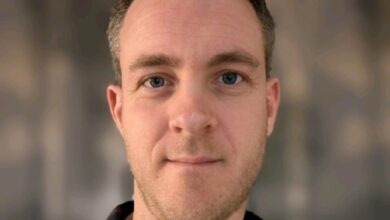Professor John Seddon: A Distinguished Career in Chemical Physics at Imperial College London

Professor John Seddon is a renowned figure in the world of chemical physics, celebrated for his long-standing academic career and substantial contributions to the scientific community. With over three decades of experience at Imperial College London, Professor Seddon has established himself as a leading authority in his field. This article explores his professional journey, education, licenses, certifications, and notable work, providing a comprehensive insight into his impactful career.
Early Education and Academic Foundations
John Seddon’s academic path began at the prestigious Royal High School Edinburgh, where he received a strong foundational education from 1965 to 1971. This early academic nurturing set the stage for his future scientific pursuits.
Following his secondary education, Professor Seddon pursued higher education with a focus on physics and biophysics. His scientific curiosity and dedication led him to undertake significant research roles early on, particularly in areas intersecting physics and chemistry.
Professional Journey: From Researcher to Professor
Professor Seddon’s career trajectory is marked by progressive roles in prestigious institutions, showcasing his dedication and expertise in chemical physics.
Researcher at the Max Planck Institute for Biophysical Chemistry (1980 – 1983)
John Seddon’s professional career commenced at the Max Planck Institute for Biophysical Chemistry, one of the world’s foremost research institutions. During his three years as a researcher, he engaged in cutting-edge scientific investigations, honing his skills in experimental techniques and theoretical understanding of chemical systems. This experience provided a solid foundation for his future academic endeavors.
Lecturer at the University of Southampton (1983 – 1991)
After his tenure at the Max Planck Institute, Professor Seddon transitioned into academia as a lecturer at the University of Southampton. Over eight years, he developed his teaching skills and broadened his research portfolio. This period was critical in shaping his approach to education and research, balancing both to cultivate a dynamic learning environment.
Professor of Chemical Physics at Imperial College London (1991 – Present)
Since 1991, John Seddon has served as a Professor of Chemical Physics at Imperial College London, one of the world’s leading universities for science and engineering. His tenure, spanning over 34 years, has been characterised by significant contributions to research, teaching, and departmental leadership.
At Imperial College, Professor Seddon has been instrumental in advancing the study of chemical physics, focusing on areas such as soft matter physics, lyotropic liquid crystals, and biophysical chemistry. His leadership roles within the department underscore his commitment to fostering academic excellence and scientific innovation.
Research Focus and Contributions
Professor Seddon’s research interests primarily lie in understanding the physical properties and behaviours of complex chemical systems. His work has encompassed various topics including:
-
Lyotropic Liquid Crystals: Investigating the self-assembly and phase behaviour of liquid crystalline materials that have applications in drug delivery and material science.
-
Metallosurfactants: Exploring compounds that combine metallic elements with surfactants, which have unique chemical and physical properties.
-
Phase Transitions Under Pressure and Shear: Studying how materials change state under different physical forces, critical for understanding material stability and performance.
-
DNA Aggregation and Lipid-Stabilised Microbubbles: Researching biological molecules and structures that have relevance in medical imaging and therapies.
His methodological approach combines experimental techniques such as X-ray diffraction, neutron scattering, and various microscopy forms, alongside calorimetric and spectroscopic methods. This comprehensive approach has allowed him to produce over 240 scientific publications, contributing significantly to the global understanding of chemical physics.
Licenses and Certifications
In addition to his academic achievements, Professor John Seddon holds notable professional recognitions. Among these is his status as a Fellow Chartered Chemist, awarded by the Royal Society of Chemistry. This prestigious certification signifies a high level of professional competence and ethical standards within the chemistry community.
The Fellowship not only reflects his expertise but also his ongoing commitment to maintaining excellence in his field. Although his fellowship was issued in March 2021 and expired in December 2021, it remains a testament to his professional stature.
Role at Imperial College London
Imperial College London is synonymous with scientific innovation and excellence, and Professor Seddon’s role there is pivotal. Beyond his professorship, he has contributed to the department’s leadership and strategic direction, helping to shape the future of chemical physics education and research.
His responsibilities include mentoring young researchers and students, overseeing research projects, and fostering collaborations across disciplines. Through these roles, he has influenced generations of scientists and helped maintain Imperial College’s reputation as a world-class institution.
Impact on the Scientific Community
Professor John Seddon’s career is not just defined by his research output but also by his dedication to education and community leadership within science. His work in chemical physics has practical implications in materials science, biotechnology, and pharmaceuticals, bridging fundamental research with real-world applications.
His extensive publication record, coupled with his leadership roles, reflects a career committed to advancing scientific knowledge and inspiring new research directions.
Conclusion
John Seddon stands as a distinguished figure in the field of chemical physics, combining decades of research excellence with a passionate commitment to education and scientific leadership. His journey from a researcher at the Max Planck Institute to a seasoned professor at Imperial College London illustrates a career marked by dedication, innovation, and professional integrity.
His educational background, professional experiences, and certifications all contribute to his standing as an influential scientist whose work continues to shape the landscape of chemical physics. Aspiring scientists and students alike can draw inspiration from his achievements and contributions to the scientific community.



